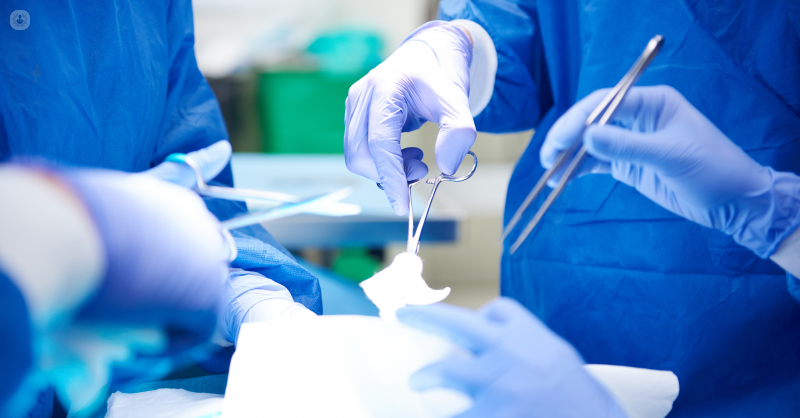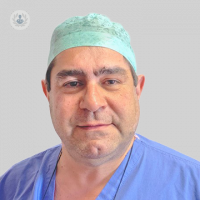Rafaelo® procedure: a fast and effective new treatment of haemorrhoids
Written by:Around 50% of adults experience haemorrhoids by the age of 50. Most of the time, they go away on their own, but if your haemorrhoids are persistent or reoccurring, you may want to consider this new treatment available. Mr Giovanni Tebala, a consultant colorectal, upper GI & laparoscopic surgeon based in Reading, Windsor and Slough, offers this treatment and briefly explains why it’s so efficient and effective for his patients.

What is the Rafaelo® procedure?
The Rafaelo procedure is a new and effective procedure to treat the so-called haemorrhoidal disease. It’s minimally invasive and aims to shrink the engorged haemorrhoidal cushions with the use of radiofrequency energy.
Who needs the Rafaelo® procedure?
The Rafaelo procedure can be used on any patient with haemorrhoids. The particular nature of the Rafaelo treatment makes it suitable mostly for patients with first or second degree haemorrhoids (internal haemorrhoids), although good results have been obtained also in some patients with third and fourth degree haemorrhoids.
What does the Rafaelo® procedure involve?
The Rafaelo procedure can be performed under local, regional or general anaesthesia. Clearly, the advantages of mini-invasiveness can be appreciated mostly if the patient is under local anaesthesia, with or without a minimal sedation. In these conditions, the patient should be able to leave the hospital a few minutes after the procedure.
A small proctoscope is inserted into the anus and, once the haemorrhoids to be treated have been identified, a radiofrequency probe is inserted into each cushion and activated for a few seconds. This energy causes shrinkage of the haemorrhoids and produces a minimal amount of scar tissue that fixes the haemorrhoids to the underlying tissues and eventually reduces the prolapse component.
The operation takes less than 20 minutes and can be associated to other procedures such as colonoscopy, Botox injection, manual proctopexy, partial haemorrhoidectomy and excision of skin tags.
Are there any risks of complications with the Rafaelo® procedure?
Each and every surgical procedure has a risk of complications. Untoward side effects and complications can happen also with Rafaelo, but the risk is very low.
Anal discomfort and discharge for few days are common side effects, but usually they don’t interfere with the patient’s everyday activities and can be easily tolerated.
Much more rarely, the patient can develop a perianal infection that may need antibiotics and/or drainage.
Minimal bleeding is possible 5-10 days after the procedure, but usually it is self-resolving and shouldn’t be of much concern.
How long does recovery take?
Immediately after the procedure the patient is able to go to the recovery room, if they had general anaesthesia or sedation. Otherwise, they can go straight to their room.
Post-procedure pain is usually minimal and well tolerated with common non-opioid pain-killers. We always suggest at least 24-48 hours of rest at home before going back to work, but patients should be able to restart their normal activities very soon after the procedure.
Visit Mr Giovanni Tebala’s profile now and book an appointment to see him.


